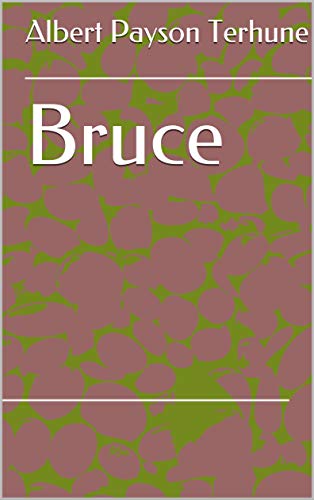CHAPTER V BRUCE
byChapter V brings the war into sharper focus as Bruce arrives with the regiment at Meran-en-Laye, a once-thriving village now gutted by conflict. Stone walls are reduced to rubble, and the quiet streets echo the weight of history and destruction. Yet, amidst this devastation, the soldiers find a brief pause from the front lines. The town becomes a crucial location not only for regrouping but also for intelligence gathering, as whispers of betrayal move with the wind. This interlude, though less violent than the trenches, carries a different danger—one wrapped in smiles and cloaked in false goodwill. The soldiers remain wary, but none more so than Bruce, whose instincts prove keener than any man’s suspicion. While others find momentary rest, Bruce becomes a sentinel, his every move guided by something deeper than training—something like purpose. And in war, purpose is what keeps the brave alive.
As the days unfold, Bruce becomes uneasy with the presence of a woman dressed as a Red Cross nurse, her manner too practiced, her interest too invasive. This is not the gentle caretaker she pretends to be. Her name is given as something forgettable, but her mission is anything but. In truth, she is Herr Stolz, a German agent hidden in plain sight. Bruce’s reaction to her scent, her voice, her gait is immediate and intense. Yet his warnings are dismissed as agitation or fatigue. When he lunges, it is not out of rage but of recognition—he sees what others won’t. The betrayal is a bitter pill, especially for Sergeant Mahan, who believes deeply in Bruce’s intuition. Tension brews beneath the surface as soldiers begin to question whom to trust, unaware that the true enemy sits among them in disguise.
The final confrontation arrives under a dusky sky, the battlefield replaced by a lonely rise beyond the village. Bruce, breaking from his handler, follows Stolz into the hills. No commands are needed; his instinct takes over. There is no audience but the trees and the shadows when Bruce corners the imposter. A struggle follows, silent but fierce, the culmination of days of suspicion. When Bruce emerges, bloodied but victorious, he does not seek praise. Instead, he returns to camp with only his eyes revealing the truth. There, in the folds of the woman’s coat, documents are found—proof of treachery sealed in stolen ink. The regiment owes their safety not to strategy, but to the nose and courage of a collie who never asked for medals.
Bruce’s actions ripple through the camp, altering the way men view their four-legged companion. He is no longer just a mascot or a messenger—he is a soldier in every right. His keen senses, once doubted, become gospel. Around campfires, the story of the nurse who wasn’t and the dog who knew grows into legend. The bond between Bruce and his men deepens, rooted now not just in affection but in respect. He had acted not just from loyalty, but from clarity and resolve. The village may fall silent again, but Bruce’s role will echo longer than the sounds of retreating boots or distant guns. In war, trust is the rarest resource. And in Bruce, they found an endless supply.
Historically, animals like Bruce played irreplaceable roles in both World Wars. Dogs were trained not only for detection and messaging but also for espionage-related tasks, recognizing patterns and even detecting disguised enemies. The loyalty shown by war dogs has been documented through medals, journals, and memorials, standing as a testament to their contribution. Bruce’s fictional tale resonates deeply with these real accounts, highlighting the extraordinary capacity of animals to sense what human perception often misses. Their courage, forged without words, reminds us that strength and wisdom aren’t limited by species. Through Bruce, readers glimpse the quiet courage that saves lives in the shadows of greater conflict.

